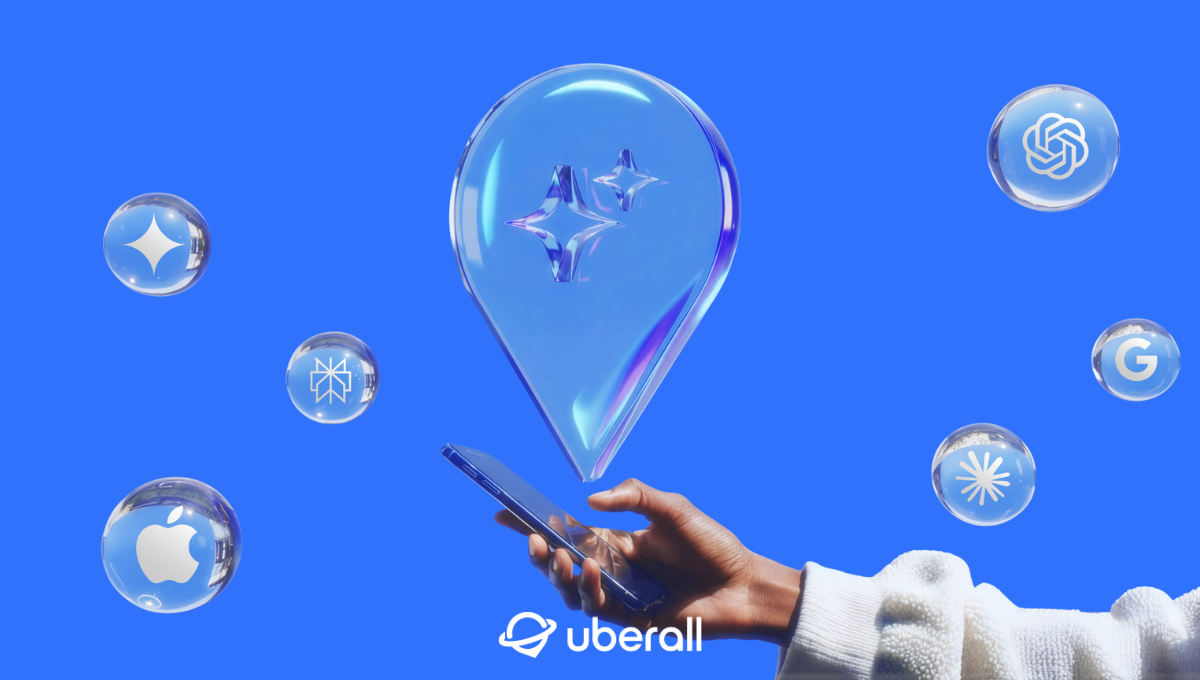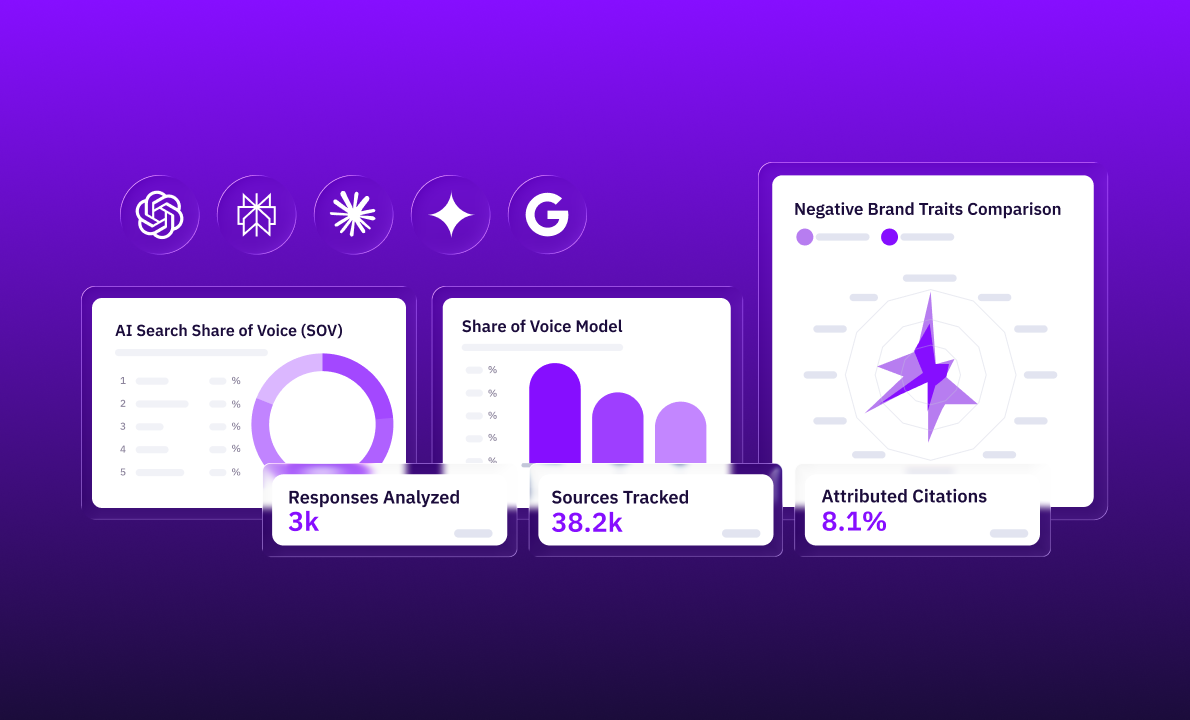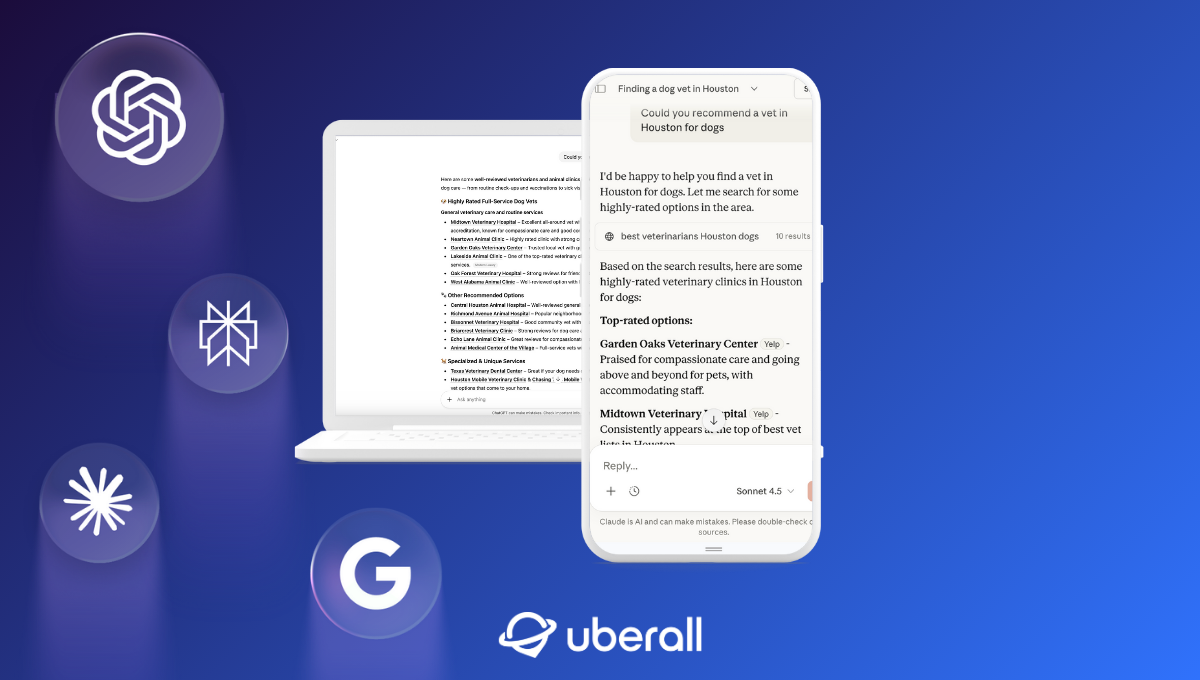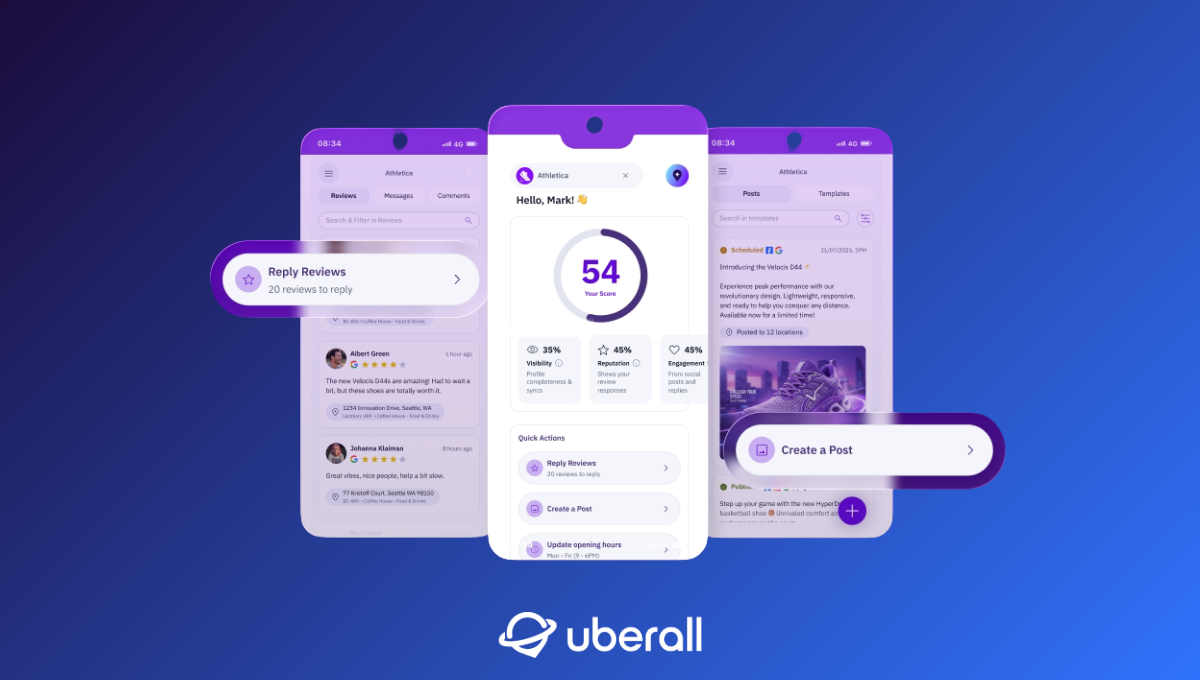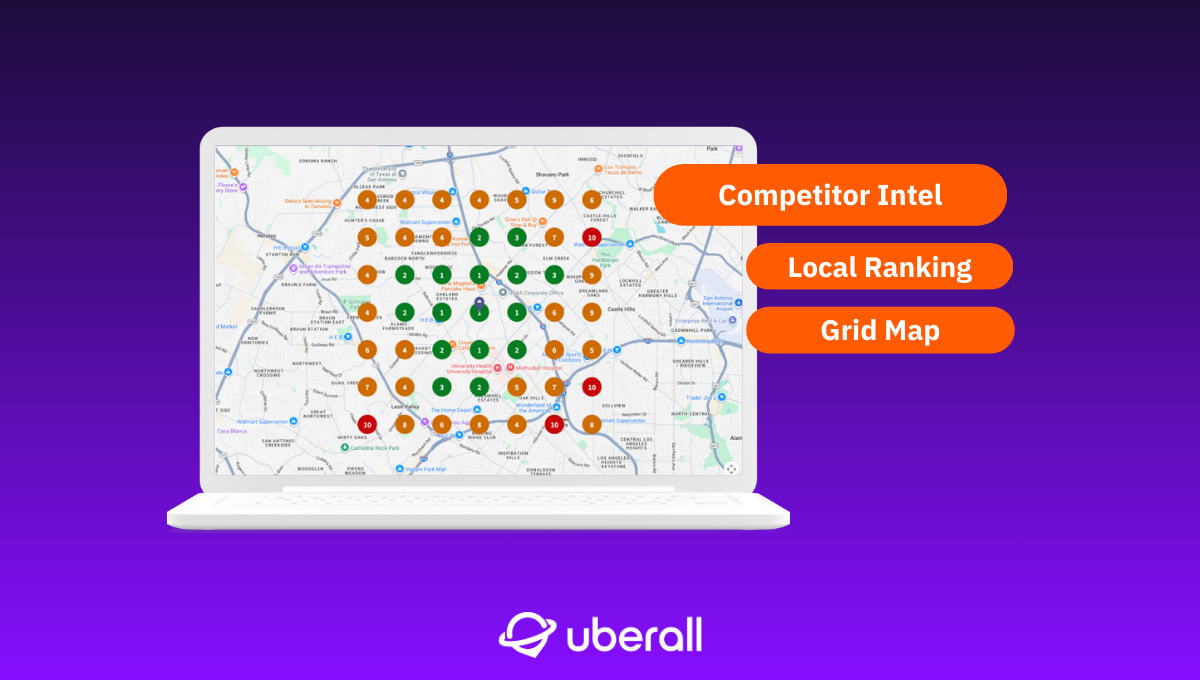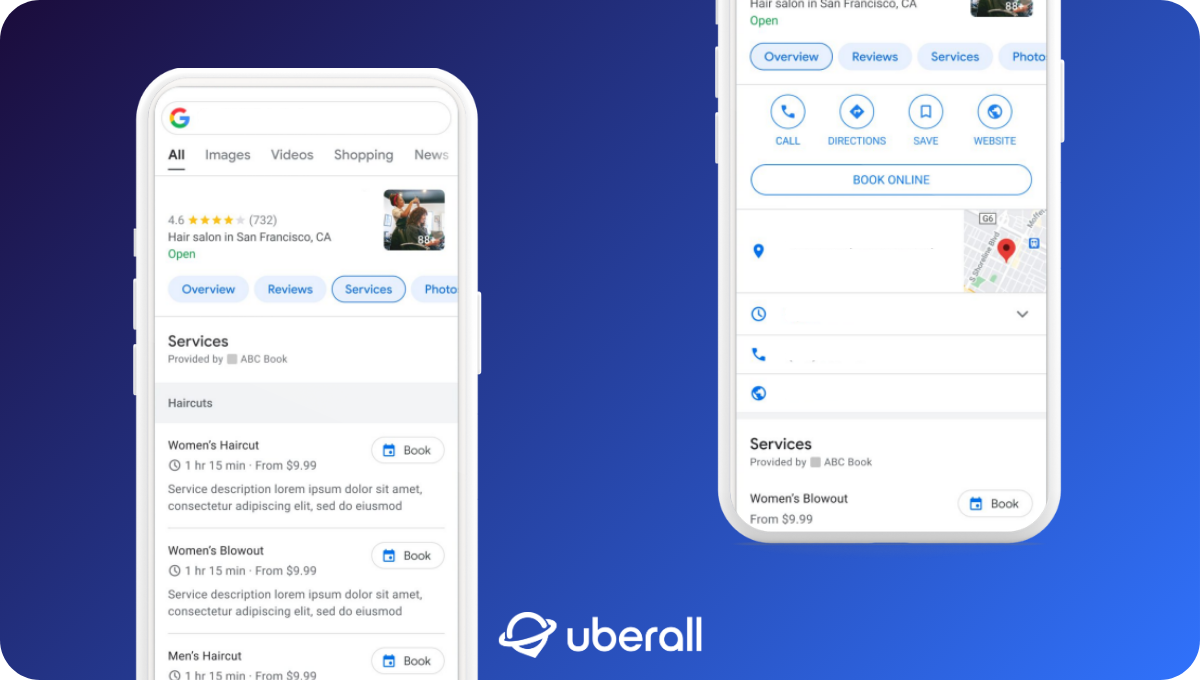
How AI Marketing Assistants Are Transforming Operations
Discover how AI marketing assistants transform operations for multi-location businesses, boosting efficiency, personalization, and data-driven insights.
You can hardly turn around in the modern world without facing some form of artificial intelligence. These days, AI runs moderation on social media, spellcheck, smart homes, banking, and customer service interactions for businesses of all sizes.
But while AI's impact is everywhere, one of its most intriguing advancements lies in marketing operations. This article explores how AI marketing assistants are reshaping this field and why they’re becoming essential tools for multi-location businesses.
What Defines an AI Marketing Assistant Today?
According to industry research, an AI marketing assistant leverages AI-driven techniques and tools like data models, algorithms, and machine learning to generate customer insights that help marketers optimize their budget, tailor content, and personalize the customer experience throughout their journey. These tools encompass everything from customer-facing chatbots and recommendation engines to operational enhancements such as ad targeting, data analysis, and dynamic pricing.
The appeal of AI marketing assistants for multi-location businesses includes:
- Improved efficiency for day-to-day tasks
- Cost-effective investment in long-term operations
- AI-enhanced customer experiences
- Capabilities to analyze vast amounts of available data
AI marketing assistants are transforming how businesses engage with customers, offering smarter, more personalized experiences that would have been unthinkable just a few years ago.
The Relationship Between AI-Driven Interactions and Customer Expectations
AI-driven interactions continue to proliferate across the customer lifecycle as consumers become more demanding and discerning.
Social media response expectations have intensified, with 63% of social media users now expecting a brand response within one hour. This expectation for rapid response extends beyond social media to all customer touchpoints.
Current Examples of AI Marketing Assistants in Multi-Location Operations
Today’s customers demand support 24/7/365, well beyond traditional working hours. More businesses are turning to chatbots and large language models (LLMs) to provide round-the-clock support without requiring extensive on-call human resources.
Recommendation engines drive upselling in retail, where AI plays a pivotal role in purchasing decisions throughout the online shopping experience. These systems are particularly valuable for multi-location businesses managing diverse customer bases across different markets.
Common Technologies Powering AI Marketing Assistants
AI technologies such as Natural Language Processing (NLP), Machine Learning (ML), and predictive analytics enable businesses to understand customer behavior at scale. Large Language Models (LLMs) afford chatbots a more human feel, with tailored responses built from extensive interaction data.
Key AI Marketing Tools for Multi-Location Businesses
Which AI marketing assistants make the most sense for multi-location businesses? Let’s explore the tools revolutionizing marketing operations:
Multi Location Review Management
A 2024 survey found that 88% of consumers will choose a business that responds to every review, but only 47% would choose a business that never replies to reviews. Deploying AI-enabled multi-location review management tools provides full control over your reputation, allowing you to read, analyze, and respond to local reviews across the web from a single platform.
Uberall’s review management capabilities help multi-location businesses maintain consistent brand reputation across all locations while reducing the manual workload on local teams.
Social Media Content Creation and Templates
AI has ushered in a new era of social media management with content recommendations, personalized messaging, data-driven insights, and automated scheduling. But AI marketing assistants for social media go beyond scheduling — they can optimize your tone of voice design process, influence audience engagement, and create tightly-controlled post templates for local marketers to adapt.
AI-Driven Ad Targeting and Audience Segmentation
The online reputation management market is projected to grow from $4,523 million in 2024 to an estimated $17,456.02 million by 2032, with a compound annual growth rate (CAGR) of 16.19% from 2024 to 2032. Many marketers embrace AI-driven advertising through programmatic tools that automate the buying and selling of ad space in real time, optimizing ad placements based on data-driven insights.
NLP-based LLMs enable scaling sentiment analysis, digesting consumer feedback, and optimizing ad copy. For multi-location businesses, AI allows local marketers to move beyond demographic segmentation toward more accurate targeting that reflects real-time changes in buyer behavior.
Chatbots and Customer Service Assistants
Modern AI agents process complex conversations, no longer resigned to serving up help center indexes alone. Using chatbots can reduce wait times, improve response accuracy, and distribute conversations more effectively. Respond to all reviews within 24 to 48 hours becomes manageable when AI assists with initial responses and escalation protocols.
Ethical and Legal Considerations for AI Marketing Assistant Deployment
Despite AI marketing assistants' potential, you should approach this technology with awareness of its challenges. AI brings ethical and legal considerations, especially for businesses operating internationally with varying regulations.
Consumers increasingly scrutinize privacy implications of tailored customer experiences and the amount of personal data they share.
Essential considerations include:
- Clear data privacy policies: Make your data practices transparent to consumers
- Bias mitigation: Ensure diverse teams guide AI development and maintenance
- Human oversight: Design backup plans for when customers need actual human interaction
Without proper support, deploying AI marketing bots can result in the loss of the human touch customers crave. Make sure not to rely solely on AI marketing assistants for customer experience — maintain human oversight and intervention capabilities.
AI Marketing Assistants Enhance Multi-Location Marketing Effectiveness
AI marketing assistants not only streamline your marketing operations for improved efficiency — they also free local marketers to focus on strategic work with greater impact potential.
For multi-location businesses specifically, these tools enable:
- Centralized brand consistency across all locations
- Local customization while maintaining brand standards
- Scalable customer service without proportional staff increases
- Data-driven insights across diverse market conditions
Uberall's business listing management software partnered with an unmatched user experience, provides an all-in-one local SEO management platform for managing multi-location marketing. With 46% of all Google searches having local intent, businesses that optimize for local SEO are positioned to win big. This isn't just about showing up in search results — 78% of mobile local searches lead to an offline purchase, often within 24 hours.
With intelligent workflow automation, creative engagement on demand, and AI-powered analytics, Uberall's multi location marketing software transforms marketing operations for busy teams.
Ready to Transform Your Business?
Connect with our partnership team to learn how Uberall can help you achieve similar results. Get a personalized consultation and discover the opportunities waiting for your business.
Resources






